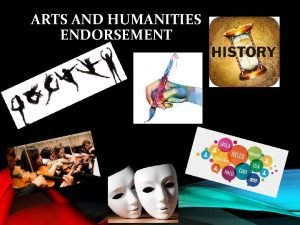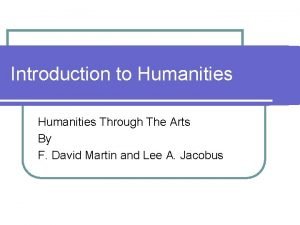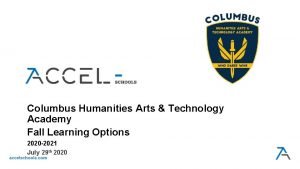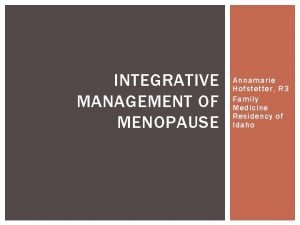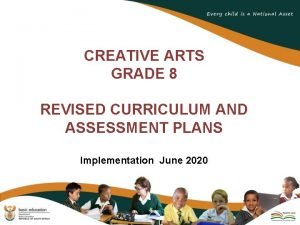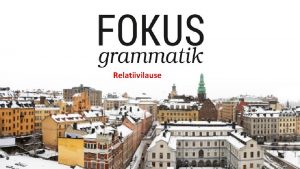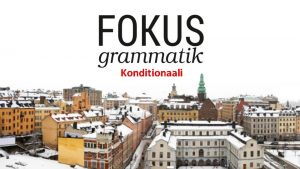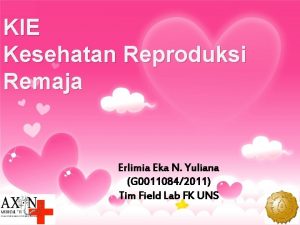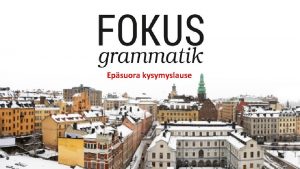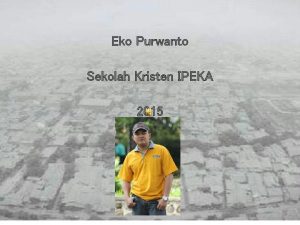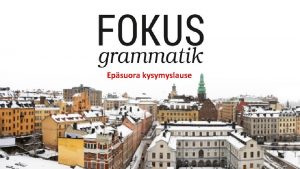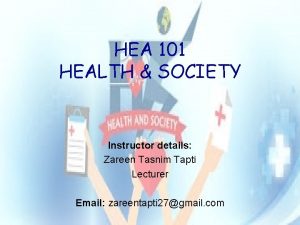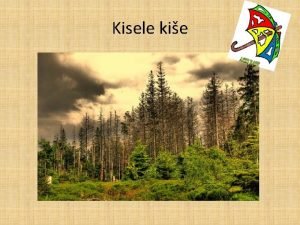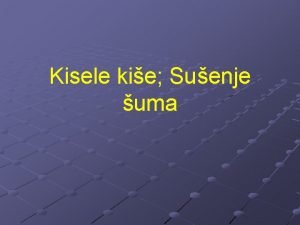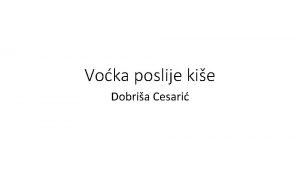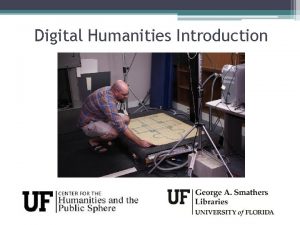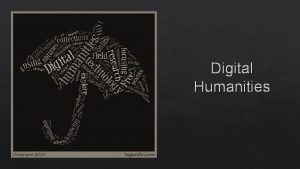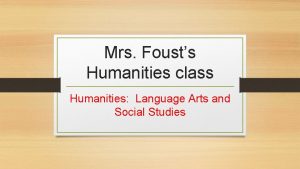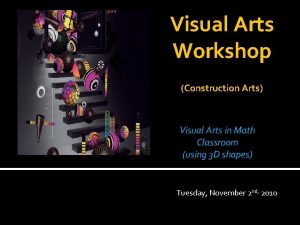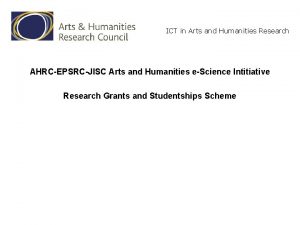HEA Arts Humanities conference workshop Annamarie Mc Kie













- Slides: 13

HEA Arts & Humanities conference workshop Annamarie Mc. Kie – Educational Developer – amckie@uca. ac. uk Maria Tannant – PM in Digital Pedagogy – mtannant@uca. ac. uk University for the Creative Arts

ONE STEP BEYOND: exploring assessment for learning in the creative arts

Session outline • Assessment and feedback challenges in art and design • UCA student experiences of assessment and feedback • Conditions assessment supports student learning • Models of assessment for assessing creative work • UCA approaches to assessment and feedback.

What are the challenges with assessment and feedback in art and design?

Assessment and feedback in art and design ‘There remains varied interpretations and understandings, held by students and academics, on what is feedback, how feedback is defined and how this can inform learning’. (Blair, 2009)

Assessment and feedback challenges at UCA

Assessment and feedback challenges at UCA ‘My tutors sometimes give contradictory feedback. This can be useful to help you develop your own view on what may or may not work, rather than relying on theirs. For some, this is also confusing. ’ ‘Feedback can be somewhat vague at times. You need to ask questions further to clarify’

Assessment and feedback challenges at UCA ‘Our tutor will say great, love it and then two weeks later in another formative review, another tutor says scrap it…I am really confused now and don’t know how to develop my work…’

What conditions are needed for assessment to support student learning?

Assessment and feedback 10 minutes to discuss and minutes to present idea scenarios in 5 art and design http: //padlet. com/mariatannant/scenario 1 http: //padlet. com/mariatannant/scenario 2 http: //padlet. com/mariatannant/scenario 3

Alternative Assessments

Flexible assessment and feedback methods using technology

Bibliography Barrow, M. (2006). Assessment and student transformation: linking character and intellect. Studies in Higher Education, 31(3), pp. 357 -372. Bourdieu, P. (1977). Outline of a Theory of Practice. Cambridge, Cambridge University Press. Bourdieu, P. (1986). Distinction: A Social Critique of the Judgement of Taste. London, Routledge. Cannatella, H. (2001). Art Assessment and Evaluation in Higher Education, 26(4), pp. 319 -326 Cowdroy, R. , & de. Graff, E. (2005). Assessing highly-creative ability. Assessment and Evaluation in Higher Education, 30(5), pp. 507 -518. Cresswell, M. (1996). Defining, setting and maintaining standards in curriculum-embedded examinations: judgmental and statistical approaches. In H. Goldstein & T. Lewis (Eds. ), Assessment: problems, developments and statistical issues (pp. 57 -84). Chichester, Wiley. Gordon, J. (2004). The 'wow' factors: the assessment of practical media and creative arts subjects. Art, Design and Communication in Higher Education, 3(1), pp. 61 -72. Orr, S. (2005). ‘Justify 66 to me!’ An investigation into the social practice of agreeing marks in an HE art and design department. In C. Rust (Ed. ), Improving Student Learning through Assessment: Proceedings of the 13 th International Symposium (pp. 283 -294). London, Oxford Brookes University. Orr, S. (2007). Assessment Moderation: Constructing the Marks and Constructing the Students. Assessment and Evaluation in Higher Education. 32(6), pp. 1 -12. Orr, S. (2010) The Role of Professional Judgement in Assessment: A Journey from Accuracy to Zing. Inaugural Professorial Lecture. York St John University. January 2010 Orr, S. (forthcoming) ‘We kind of try to merge our own experience with the objectivity of the criteria’: The role of connoisseurship and tacit practice in undergraduate fine art assessment, Art, Design and Communication in Higher Education. Percy, C. (2004). Critical absence versus critical engagement. problematics of the crit in design learning and teaching. Art, Design and Communication in Higher Education, 2(3), pp. 143 -154. Price, M. (2005). Assessment standards: the role of communities of practice and the scholarship of assessment. Assessment and Evaluation in Higher Education, 30(3), pp. 215 -230. Rowntree, D. (1987). Assessing Students: How shall we know them? London, Kogan Page Limited. Shay, S. (2003). The assessment of final year projects: a study in academic professional judgment. Ph. D Dissertation. Unpublished manuscript, University of Cape Town. South Africa. Shay, S. (2005). The assessment of complex tasks: a double reading. Studies in Higher Education, 30(6), pp. 663 -679. Snyder, B. R. (1973). The Hidden Curriculum. Boston: MIT Press. Wenger, E. (2004). Communities of Practice: Learning, Meaning and Identity. Cambridge, Cambridge University Press. Yorke, M. , Bridges, P. , & Woolf, H. (2000). Mark distributions and marking practices in UK higher education. Active Learning in Higher Education, 1(1), pp. 7 -27.
